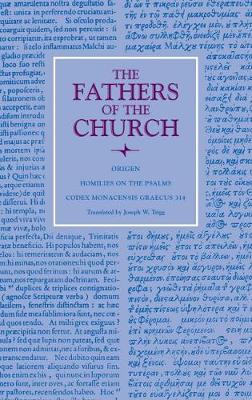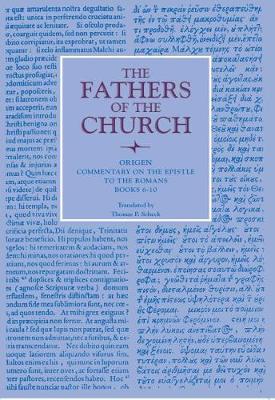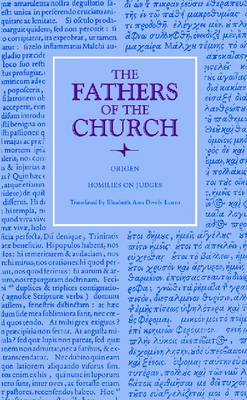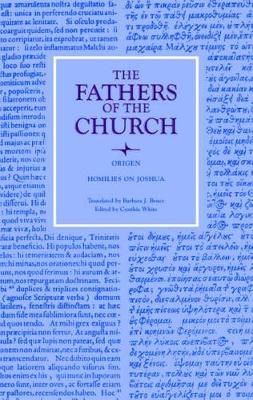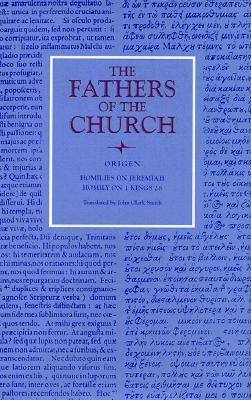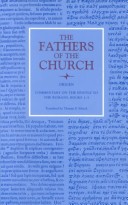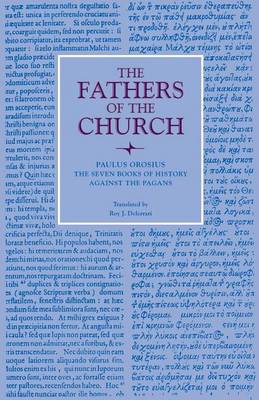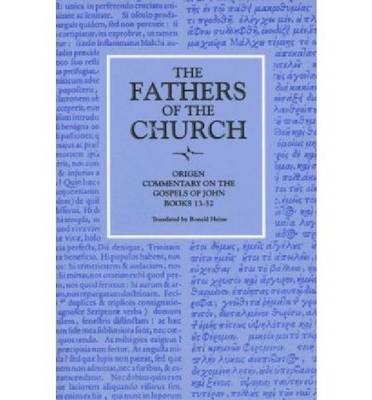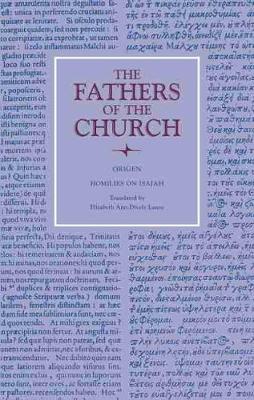Fathers of the Church
2 primary works • 12 total works
Book 71
Book 83
In these homilies, the final expression of his mature thought, Origen displays, more fully than elsewhere, his understanding of the church and of deification as the goal of Christian life. They also give precious insights into his understanding of the incarnation and of human nature. They are the earliest example of early Christian interpretation of the Psalms, works at the heart of Christian spirituality. Historians of biblical interpretation will find in them the largest body of Old Testament interpretation surviving in his own words, not filtered through ancient translations into Latin that often failed to convey his intense philological acumen. Among other things, they give us new insights into the life of a third-century Greco-Roman metropolis, into Christian/Jewish relations, and into Christian worship.
This translation, using the GCS as its basis, seeks to convey, as faithfully as possible, Origen's own categories of thought. An introduction and notes relate the homilies to the theology and principles of interpretation in Origen's larger work and to that work's intellectual context and legacy.
In Books 6-10 Origen carries through to completion his programme, begun in Books 1-5, of defending human freedom and of opposing the natural predestinarian doctrine of the sects founded by the Gnostic heretics Marcion, Valentinus, and Basilides. These schools relied heavily on texts from Paul, interpreted in isolation from the rest of Scripture, not only to deny free will but to support the doctrine that salvation is determined by the nature one receives at birth, whether good or evil. In contrast Origen clarifies passages in Romans by citations from Paul's other letters, from the Gospels, and from the Old Testament. He attempts to construct a coherent and unified ""biblical theology."" Origen views human beings as chosen or rejected by God deservedly; everyone has it within his own power whether he becomes a servant of God or of sin, a vessel of wrath or of mercy.
Whether one sympathises with Origen's interpretations or finds them infuriating, it is difficult not to admire his concordance-like mind at work as he tackles the apostle Paul's greatest epistle. Readers will find interesting and thought-provoking discussions of all the important theological themes and terms of Romans: faith, hope, love, works, justification, election, law, Israel, Gentiles, Church, sin, death, flesh, body, glory, etc. The importance of these discussions is magnified by the fact that they stand alone in their detail and breadth and stem from the Church's most important theologian of the third century. Moreover, because Origen's work was productive in subsequent centuries in Rufinus's Latin translation, the Commentary is of outstanding importance for the history of New Testament exegesis.
v. 94
Origen preached these homilies in Caesarea, perhaps around the year 234 or 240, to a congregation of catechumens and faithful. Most of the homilies are short, discussing, on the average, about six verses of the Gospel, and would have lasted between eight and twelve minutes. Origen's homilies are the only extant patristic writing on Luke's Gospel before Ambrose's "Exposition on Luke", written circa 390. Homilies 1 to 20 also constitute the only extant commentary from the pre-Nicene Church on either Infancy Narrative.
v. 97
Origen in many ways identified with the great prophet and thought of Jeremiah as a type for Christ in the Hebrew Scriptures. Origen realized that Jeremiah came at a crucial time in the history of Israel, the time of captivity, and he views this event and the events around it as pregnant with meaning for the people of his time. Watching a master grapple with admittedly difficult, obscure texts and give them compelling, forceful delivery must have impressed Origen's congregation. Readers will find it no less engaging to read his homilies now and experience some of that exhilaration of hearing a true expert highlight every subtlety of the pericope and make plain what once was obscure.
v. 103
Orosius wrote the first Christian Universal History, "Historiarum adversus paganos libri septem." It has been thought to be a supplement to the "City of God," "Civitate Dei," especially the third book, in which St. Augustine attempts to prove that the Roman Empire suffered as many disasters before as after Christianity was received. It was a common argument among the pagans that the abandonment of the worship of their deities had led to the general break-up of the Roman Empire and all its attendant evils. St. Augustine was annoyed by the persistence of this argument and hoped that a history of all the known people of antiquity, with the fundamental idea in mind that God determines the destinies of nations, would put an end to that pagan thinking.
St. Augustine called upon his young friend Orosius to do this work. Added interest is attached to Orosius' History by reason of his think link with St. Augustine. The great St. Augustine, in his declining years, requested the youthful and far less gifted Orosius to perform a most important task.
From the point of view of the modern historian and his scientific method, Orosius' work does not rate very high. The work completed in 418 shows sign of haste. In addition to Holy Scripture and the chronicle of Eusebius revised by St. Jerome, Orosius used Livy, Eutropius, Caesar, Suetonius, Florus, and Justin as sources. All the calamities suffered by the various peoples are described often with annoying monotony. Yet the work is valuable as history, containing as it does contemporary information on the period after 278 A.D. It was used widely during the Middle Ages, and the existence today of nearly 200 manuscript copies is evidence of its past popularity.
Beginning with the conversation between Christ and the Samaritan woman at the well and ending with Christ's discourse to his disciples at the Last Supper, the commentary displays Origen's attention to the literal meaning of the passages but moves beyond them to try to grasp their spiritual significance, providing us with the opportunity to examine Origen's mystical thought. Origen also refutes the Gnostic reading of the Gospel presented by Heracleon, but this polemic is subordinate to his own investigation of the theological, philosophical, historical, and etymological questions raised by the Gospel.
Because it treats many of the same passages of the Gospel of St. John for which St. Augustine provides a commentary in The Fathers of the Church, volume 88, this volume provides a worthy companion to it and invites a comparison of the thoughts of these two great exegetes upon what both regarded as the greatest of the Gospels.
Origen reads Isaiah's vision of the Lord and two seraphim in Isaiah 6 allegorically as representing the Trinity, and this theme runs throughout the nine homilies. His representation of the seraphim as the Son and Holy Spirit around the throne of the Father brought early accusations that Origen was a proto-Arian subordinationist, followed by a pointed condemnation by Emperor Justinian in 553. These homilies, originally delivered between 245 and 248, are extant only in a fourth-century Latin translation. Though St. Jerome, likely because of these controversies, does not identify himself as the Latin translator, the evidence overwhelmingly points to his pen, and his reliability in conveying Origen's authentic meaning is well documented.
If one sets aside the questionable charges of subordinationism, these homilies, expounding on passages from Judges 6-10, come alive with Origen's legacy of presenting Christ as the central figure of the soul's ascent to God. Reading allegorically the two seraphim to be Jesus and the Holy Spirit around the Father's throne, Origen draws a picture of the Trinity as a tightly knit whole in which the Son and the Holy Spirit eternally sing the Trisagion ("Holy, holy, holy") to each other and the Father about the divine truths of God's nature, allowing the part of their song that conveys the "middle things" of salvation history to be heard by creation. The "second seraph" is the Son, or Jesus, who descends holding a hot coal, or Scripture, from the altar of the throne, with which he cleanses Isaiah's lips, or the believer's soul. Origen employs his signature exegetical method of allegory and typology through the lens of the threefold meaning of Scripture to emphasize to his hearers that Christ is the deliverer, the content, and the reward of the healing Word. He repeatedly assures them that those who submit to Scripture will enter into salvation history's cycle of cleansing from sin, growth in virtue, and ever-deepening knowledge of God. As a result, they will become like Christ and thus will be prepared to join the Trinity for all eternity at the heavenly wedding feast.

